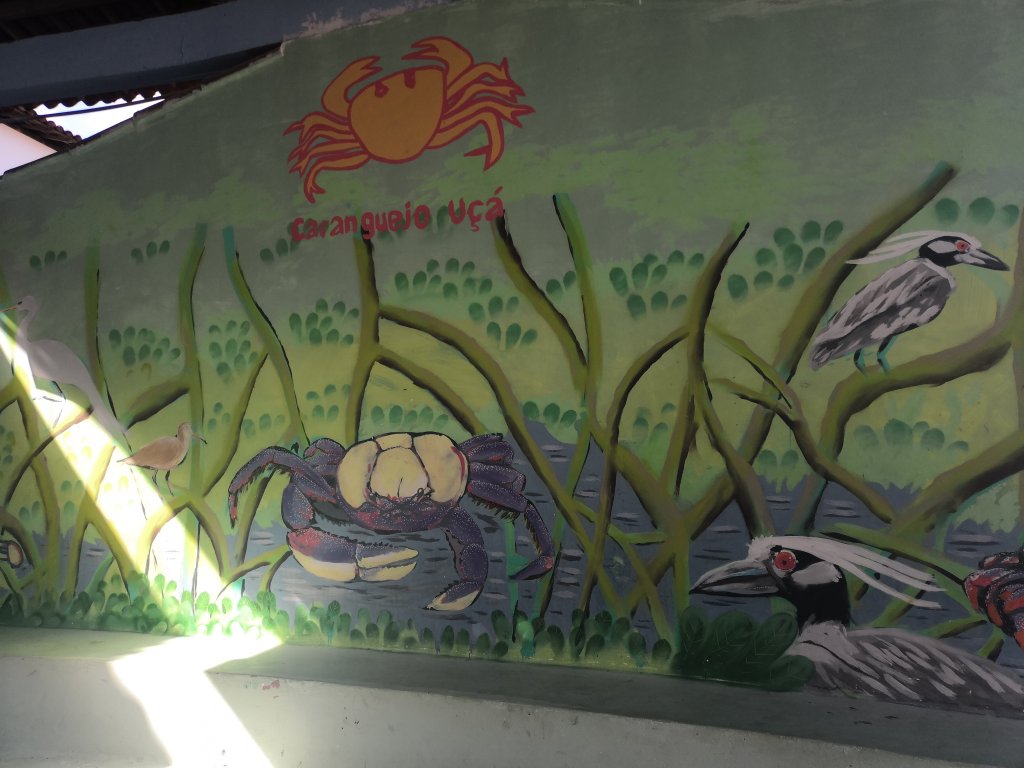1 March, 2019
Reforming city life from the bottom up
Brazil programme / Programme news
Photo: © Paulo Shinji
Between 2015 and 2019, Oak’s Joint Brazil Programme supported organisations working on a range of issues related to human and socio-environmental rights and right to the city in the metropolitan region of Recife, Brazil.
What do the following have in common: a group of civil society organisations fighting for improved and accessible public transportation; a web of movements engaged in promoting political innovation; and a network of activists working to make urban planning processes more participatory?
The answer is that each reveals, in its own way, that the most promising road to more democratic cities is collective and connected. That’s why building strong networks
Citizen security
In Recife and beyond, civil society organisations have been working to improve security in city centres. Their efforts have been directed
Mobility
Several organisations have come together to promote a people-centred vision of transport and to develop projects that ensure citizen participation during the policy-making process
One of these organisations, the Institute for Transportation and Development Policy (ITDP) met with women and children from the peripheries of Recife to find out what they think about public transportation. The women responded that high costs of transport and fear of violence hindered their mobility and access to the city. The ITDP will use this information to inform policymaking oriented towards a truly accessible mobility system.
“By participating in local civil society networks, ITDP aims to strengthen participation in the development of urban policies.”
– Leticia Bortolon, coordinator of ITDP’s work in Recife.
In addition, a group of civil society organisations, including Centro Popular de Direitos Humanos, Escola de Ativismo, Instituto de Energia e Meio Ambiente, Meu Recife and
Their hope was that public transport systems would be managed in a way that respects the rights of the population. They were able to prove that bus fares had been illegally increased in previous years. By bringing it to public attention, they raised awareness of the need for increased transparency and citizen voice in the public transport system.
Quality of urban space
In Recife, many organisations and movements have been working to support community-led development endeavours. Together they help build community capacity to stand strong against developers and negotiate with the government and large corporations.
To this end, the Fundo Socioambiental Casa supports more than 100 groups, collectives and movements that are developing socio-environmentally friendly ways of solving urban problems in seven Brazilian metropolitan regions.
“We believe that it is only through networks that we can strengthen the work of organisations”
– Cristina Orfeo from Fundo Socioambiental Casa.

Photo: © Paulo Shinji
Citizen participation
Security, mobility and urban space for all can only be ensured if the voices of everyone are heard within the public sphere and integrated
- ensuring that society has access to public information;
- producing high-quality media that give
critical analysis of public events and debates; and - ensuring that civil society can investigate and negotiate policy options in institutional settings.
Independent media has played an especially important role in this context. Marco Zero Conteúdo, a local independent media organisation, produces original media content to highlight issues relating to the right to the city. It has been conducting fact-checking and investigative journalism to inform policy debates and strengthen the demands and struggles of civil society
Based in São Paulo, Instituto Update brought together activists seeking to reinvent institutional politics. Thanks to its work, five women in Recife, known as Juntas, were voted into the State Assembly in a collective mandate. They represent fairer, more inclusive and democratic cities across the country.
Mobilising in turbulent times
Brazil is undergoing a period of intense political polarisation. Therefore it is particularly important to build networks based on trust, collaboration
In mid-2018, a network of more than 30 collectives and organisations including Fase, Associação Comunitária Caranguejo Uçá, Centro Popular de Direitos Humanos, Cendhec and ActionAid Brasil came together under the name Articulação Recife de Luta.
Their goal? To participate in the development of Recife’s Urban Master Plan, the single most important law directing urban development. This bill will lay down urban planning in Recife for the next ten years. Ensuring participation in the planning process is the only way to construct a fairer, more inclusive city.
This work falls under Oak Foundation’s Brazil Programme strategy which aims to:
- improve citizens’ safety in both public and private spheres;
- protect space quality, especially for vulnerable communities;
- improve mobility for all; and
- promote citizen participation.
Source: Oak Foundation Annual Report 2018